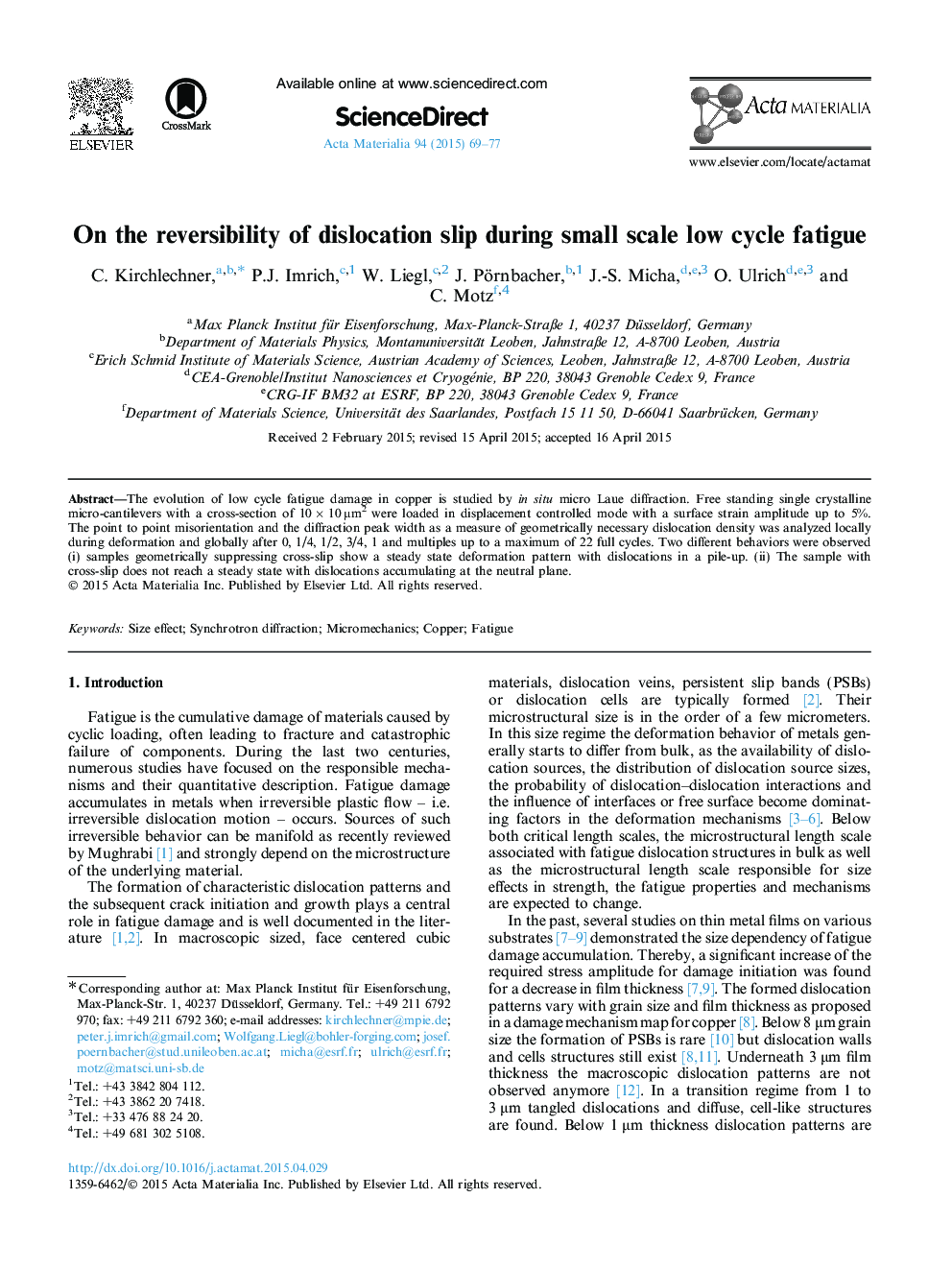| Article ID | Journal | Published Year | Pages | File Type |
|---|---|---|---|---|
| 7879919 | Acta Materialia | 2015 | 9 Pages |
Abstract
The evolution of low cycle fatigue damage in copper is studied by in situ micro Laue diffraction. Free standing single crystalline micro-cantilevers with a cross-section of 10 Ã 10 μm2 were loaded in displacement controlled mode with a surface strain amplitude up to 5%. The point to point misorientation and the diffraction peak width as a measure of geometrically necessary dislocation density was analyzed locally during deformation and globally after 0, 1/4, 1/2, 3/4, 1 and multiples up to a maximum of 22 full cycles. Two different behaviors were observed (i) samples geometrically suppressing cross-slip show a steady state deformation pattern with dislocations in a pile-up. (ii) The sample with cross-slip does not reach a steady state with dislocations accumulating at the neutral plane.
Related Topics
Physical Sciences and Engineering
Materials Science
Ceramics and Composites
Authors
C. Kirchlechner, P.J. Imrich, W. Liegl, J. Pörnbacher, J.-S. Micha, O. Ulrich, C. Motz,
